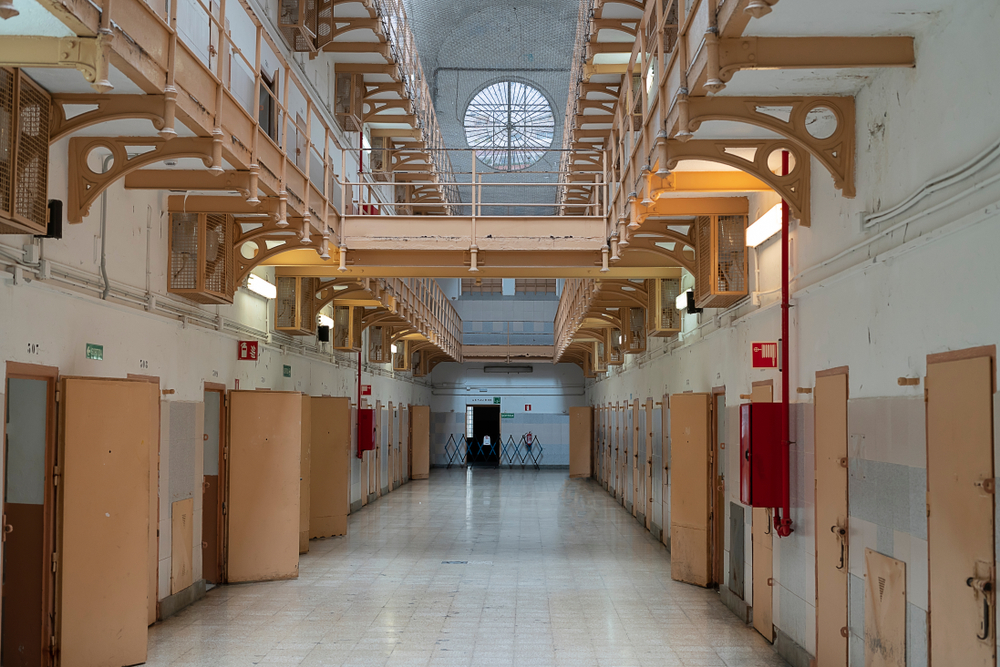According to an April 2024 report by USA Today, a coalition of advocates has teamed up with one of Texas’ most well-known inmates to sue the state over dangerously high temperatures in prison cells, arguing in federal court that inmates are “being cooked to death” and that staff members are also suffering heat-related injuries due to the lack of air conditioning.
Bernhardt Tiede II, a former funeral director whose murder of a wealthy 81-year-old widow was depicted in Richard Linklater’s film “Bernie,” starring Jack Black, initially filed the lawsuit against the Texas Department of Criminal Justice (TDCJ) in August 2023. Tiede, 65, experienced an acute medical crisis in a cell where temperatures had reached 112 degrees just days before. Though a judge granted him temporary relief by moving him to an air-conditioned cell, there is no assurance that he will remain in a climate-controlled environment.
An amended complaint filed on Monday seeks to extend the lawsuit’s protections beyond Tiede. It calls on the U.S. District Court to declare TDCJ’s prison temperature policies unconstitutional and mandate that Texas state prisons maintain temperatures between 65 and 85 degrees. Since 1994, Texas jails have been required to maintain this temperature range, and federal prisons have similarly strict regulations.
“Let’s ensure that no one else—whether inmates or corrections officers—suffers these inhumane conditions,” said Richard Linklater at a news conference supporting the lawsuit.
According to the complaint, nearly 70% of TDCJ prisons lack air conditioning, with cell temperatures often exceeding 100 degrees. A 2022 study by the JAMA Network indicated that “approximately 13% of deaths in Texas prisons during warm months between 2001 and 2019 may be attributable to extreme heat days.”
The filing describes inmates resorting to desperate measures to cool down, such as flooding their cells with toilet water and lying in it.
In 2023, the Texas Legislature allocated $85 million to TDCJ for installing more air conditioning, but this funding falls short of covering all prison facilities. Several bills mandating safe temperature ranges in TDCJ cells have failed in recent years.
Texas state Representative Carl Sherman attributed the legislative failures to a lack of compassion. “We had the resources with $32.7 billion in budget surplus,” he said. “We just didn’t have the will. If we’re true to our fidelity to the gospel, we must appropriate the resources.”
Michele Deitch, a professor who directs the Prison and Jail Innovation Lab at the University of Texas, emphasized that the problem also affects staff, contributing to high vacancy rates in state prisons. “It’s not just incarcerated people who are suffering,” she said. “Day after day, staffers endure unbearable conditions. Is it any wonder they don’t want to work in those conditions?”
The lawsuit has garnered support from advocacy groups such as Texas Prisons Community Advocates, Justice Impacted Women’s Alliance, Texas Citizens United for Rehabilitation of Errants, and the Coalition for Texans with Disabilities.
Civil rights attorney Jeff Edwards, who has been challenging TDCJ since 2011 after ten inmates died from heat strokes in one summer, criticized the department’s handling of the issue. “This lawsuit is about fixing what should have been fixed years ago, truly decades ago,” he said.
Climate change is raising concern among advocates about the sweltering conditions in U.S. prisons for incarcerated people, where infrastructure is poorly equipped to handle the worsening heat. They argue that these hot conditions may constitute “cruel and unusual punishment” prohibited by the Eighth Amendment.
According to a 2022 USA TODAY investigation, at least 44 states did not have universal air conditioning in their prisons at the time. Only one state – Tennessee – said its prisons were fully air-conditioned.

Leave a Reply